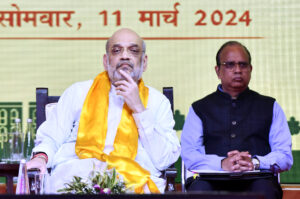What’s behind the spike in Delhi’s Covid-19 testing?
[ad_1]
Over the last week, Delhi appears to have made a huge leap in testing. After weeks of barely increasing daily tests, the Capital seems to have doubled the number of tests it was conducting each day in just four days.
Between June 18 and 21, Delhi appears to have tested around the same number of people as in the previous 10 days, conducting 13,000-18,000 tests each day. In the previous 10 days, it was conducting 6,500 tests every day on an average.

Delhi’s testing figure of 14,682 on June 22 pushed it up to the third place, only after Tamil Nadu and Andhra Pradesh, in terms of new tests conducted for the day. While Tamil Nadu conducted 26,592 tests, Andhra Pradesh tested 16,720 people on Monday.
This was surprising, considering the criticism Delhi was facing for not scaling up testing by enough, despite steep rise in cases. But due to increased testing, Delhi’s test positivity rate (TPR), which was growing continuously, also appears to have flattened simultaneously, and the positivity rate of new cases appears to be falling over the last few days.
Delhi’s TPR has hovered around the 15-16 per cent mark over the past week, and positivity rate of new cases has declined from 37 per cent on June 13 to 16 per cent on June 21.

So what could explain all these changes?
While Delhi’s health bulletin, the source of its official testing data, does not say so, tweets from deputy chief minister Manish Sisodia and the state’s arguments in a case before the Delhi high court indicate that the state has rolled out rapid antigen-based testing since June 18.
Although quick, inexpensive and easy to scale up, rapid antigen tests are far less accurate than the gold standard RT-PCR tests. Delhi has not yet said whether it is re-validating rapid antigen tests with an RT-PCR test.
Tamil Nadu and Andhra Pradesh do not include antigen tests in total testing count and use only RT-PCR data, while Delhi government seemed to say in court that both were being used.
Data from the Delhi government’s submissions in high court shows it conducted 15,000 tests on June 18, of which 7,000 were antigen tests and 8,000 RT-PCR. On June 21, it conducted 13,300 tests, of which 9,300 were antigen and 4,000 RT-PCR.

So has Delhi substantially ramped up testing, or has it reduced RT-PCR tests and only increased antigen-based tests? The Capital will need to be more transparent about its testing data. On June 25, Delhi surpassed Mumbai to become the worst-affected city in India due to coronavirus, in a race no one wants to win.
[ad_2]
Source link







